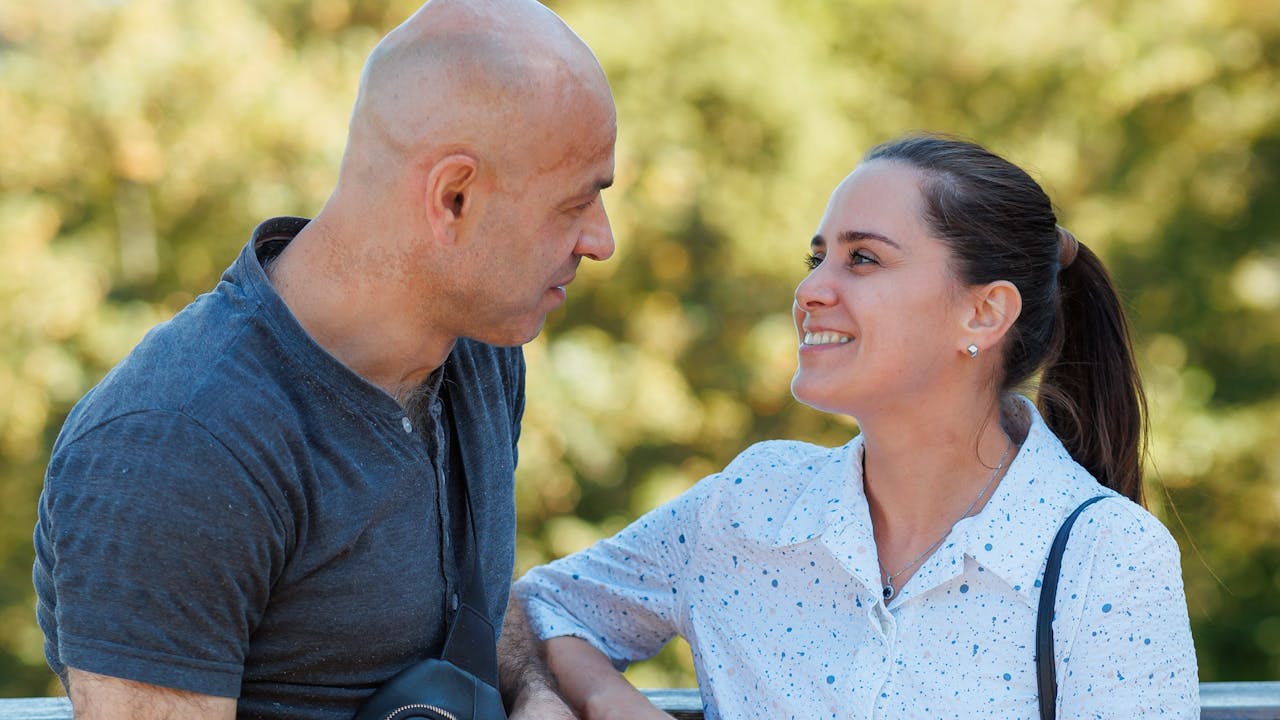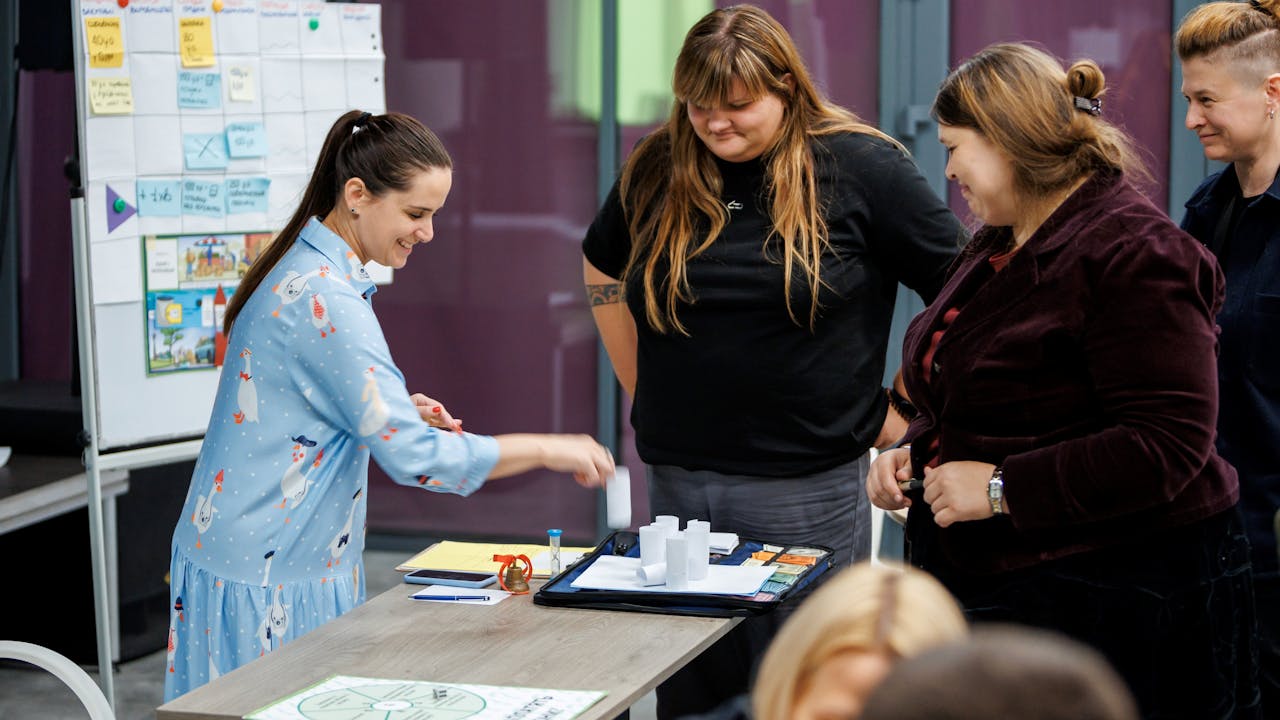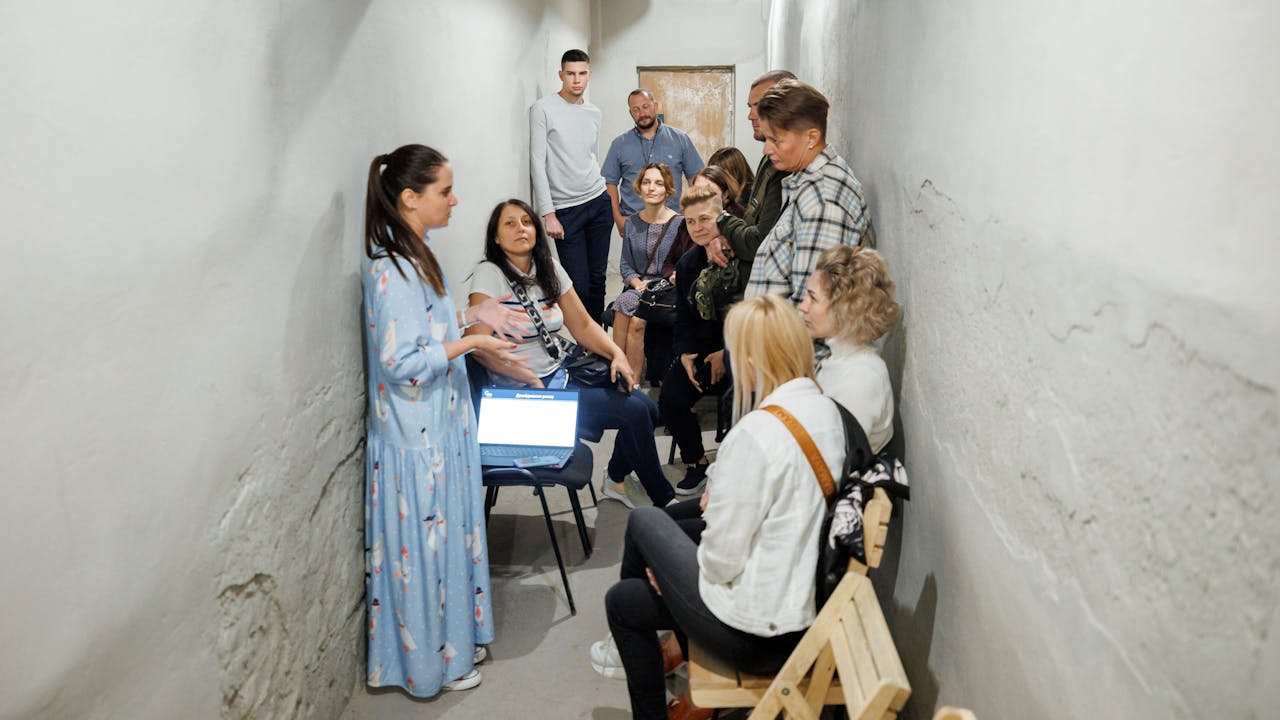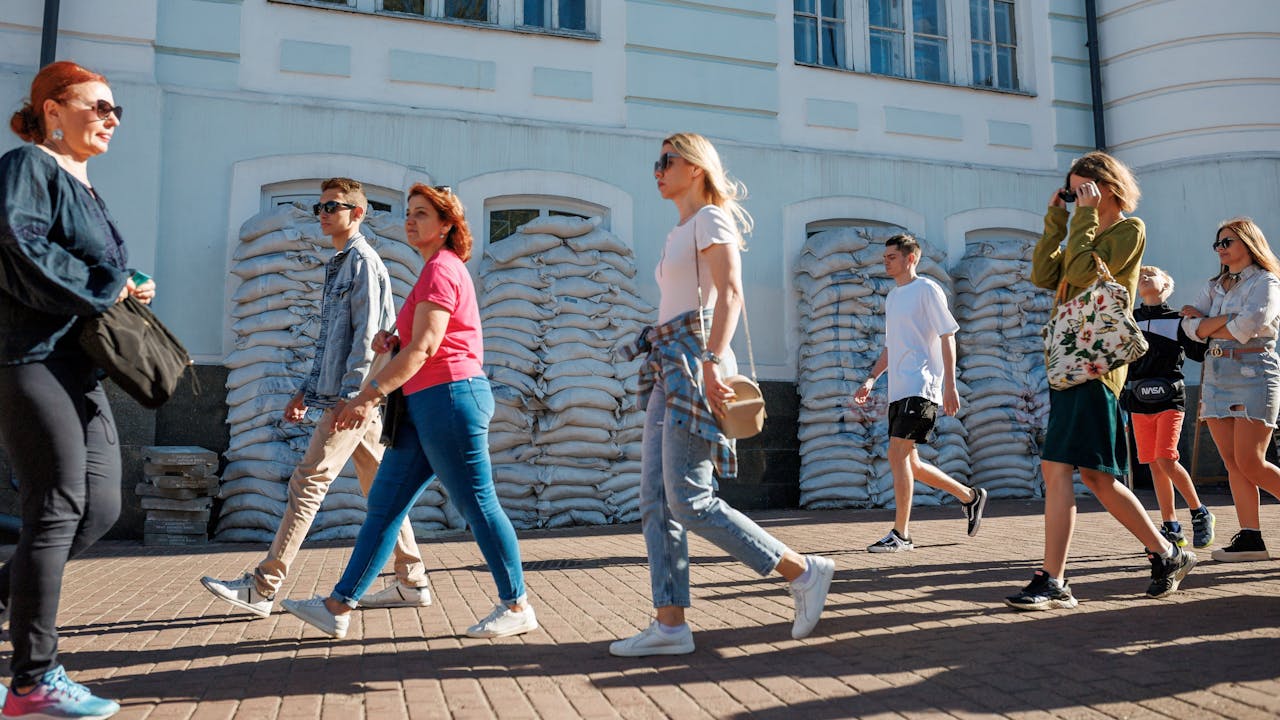When the war started in Ukraine, my husband decided to volunteer with the armed forces. The hardest part was to devise a ‘plan B’ for my life in case he died.
The war changed people and their businesses. What had been planned in January 2022, became utterly irrelevant by April, even March.
During the first two weeks, everything was suspended. We were so quiet, frozen I guess. I remember my husband calling me a week after the war started and saying, “Oh my God, I found a coffee shop where they make coffee!” because everything was closed. And of course, a lot of people also left.
Then slowly we started to recover and to think about what we should do next so that we could keep my husband’s business operating.

My husband and I decided I would take over the management of his business while he volunteered with the armed forces. (2023)
© ILO/OIT Andrii KrepkykhMy husband and I discussed and planned everything together. We agreed I would manage his business while he was away.
His company provides Ukrainian farmers with high-quality seeds, planting material and plant protection products.
I had to deal with everything. It was scary, risky and an enormous responsibility. Initially we lived on savings. No one knew if the banking system would continue to work. Everyone was waiting for it to collapse, but it held up. This is one of the factors that helped us to survive.
The biggest challenge with the full-scale invasion was its impact on farmers’ work in the eastern part and some central parts of Ukraine. Partners’ and clients’ fields were mined. Some were unable to begin work; others started much later. Some relocated to other regions and cooperated with other businesses.
We couldn't stay silent or take anything for granted. We communicated with all our partners, extended contracts with many of them and shared the losses.

For many years I took entrepreneurship training. I also dreamed of becoming a trainer myself and in 2019 this dream came true. (2023)
© ILO/OIT Andrii KrepkykhFortunately, I already had 11 years of managerial and entrepreneurial experience. I had run my own business providing custom tailoring and making ready-made garments, which I operated until the COVID-19 pandemic.
What has also helped to sustain me is my other job as a certified trainer of the International Labour Organization’s (ILO) Start and Improve your Business (SIYB) training programme.
I took part in the ILO entrepreneurship training as a trainee back in 2011. I used to look at the trainers and think “Wow!” and I dreamed of becoming a trainer myself. In 2019 when the recruitment opportunity was announced, I applied.
At the training I felt a little scared and intimidated. I had no training as a teacher, but I felt my practical entrepreneurial experience would give me an advantage.
I obtained my certification, and now in addition to running the business, I also collaborate as a trainer with a non-governmental organization called GURT.
When the war started, we were sure that people wouldn’t be up to taking part in training. But after several weeks had passed, we started to receive demand after demand for online entrepreneurship training.

At the start of 2022, we had a lot of entrepreneurship training scheduled at GURT, which works in partnership with the International Labour Organization (ILO). But like everyone else we stopped our activities when the war started. We were sure that people wouldn’t be up to training.
This was true at first. But after several weeks, we started to receive demand after demand for online entrepreneurship training and we set about providing this service.
Many people had lost their jobs, especially those who were evacuated from the most dangerous regions. They came to new places. They could live off their savings for a while. But then they started thinking, “Okay, I can live, maybe, for another three months on my savings, maybe six months, but what’s next?” They wanted to set up their own businesses but didn’t know where to start.
We also saw more women, whose husbands had either been mobilized or had volunteered with the armed forces join the training. They were interested in starting a business, or, like me, were taking over their husband’s business and needed to learn new skills.

Even though at times we have to move to the air raid shelter, the training continues. (2023)
© ILO/OIT Andrii KrepkykhIt's been remarkable to see the transformations that have taken place in our society, including how the approach to finding a business idea has changed.
As my grandmother used to say, “Difficult conditions, whether it’s poverty or something else, push us to find solutions.”
Today, most people, especially those who have relocated, think about mobile businesses that they can pack into a suitcase in case they are displaced again. They are especially people whose businesses were destroyed by shelling, missiles or raids.

It’s a difficult time for Ukrainians. During the day the sun shines but at night there is shelling and fear. (2023)
© ILO/OIT Andrii KrepkykhIt’s not an easy time to live through. Caring for your mental health has become a basic need. At night there is shelling, complete darkness, fear, and uncertainty, and in the morning, you wake up, see the sunshine, and think, “I can go have a coffee.” When this happens constantly, people will at some point experience a different and uncomfortable emotional state.
In our work at GURT, we also provide psychosocial support to those affected by the war. We are all very cautious because any one of us can experience a loss at any moment. Many acquaintances of mine have died. It’s very hard. Death has become more and more frequent in our lives.
It’s enormously rewarding to observe when people I have trained succeed with their start-ups and continue to develop. I can see the importance of what we are doing.

I think the creation of micro-enterprises through self-employment has been crucial during these difficult times.
It’s enormously rewarding to observe when people I have trained succeed with their start-ups and continue to develop. I can see the importance of what we are doing.
I still live with my plan B, but doing my trainer work is hugely gratifying. It fills me with pride and helps me to not give up.
